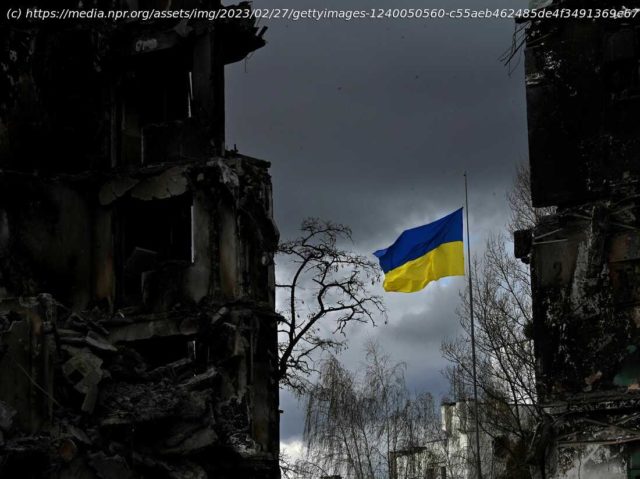Array
Last week contained a grim milestone: It was one year ago on Friday that Russian forces began marching towards Ukraine’s capital city of Kyiv.
A year later, the war shows no concrete signs of ending.
We took some time last week to pause and reflect on all that’s transpired in our live blog. As part of that coverage we asked you: After a year of unpredictability, what do you still want to know?
Whether you’re looking back, trying to make sense, or looking ahead, searching for hope, our reporters are here to help you sort through it.
Here are answers to 10 of your questions:When will it be over? What’s it going to take to get Russia out of Ukraine? — Sam
Who knows? Most think at least another year. Both armies have suffered staggering losses and neither has anything that looks like a knockout blow in them.
This is a grinding trench and artillery war of attrition. The invasion has been a disaster for President Vladimir Putin and in order to justify it at home he at least has to take control of Ukraine’s Donbas region, after which he can falsely claim that the army saved Russian citizens persecuted by Ukraine.
By Frank Langfitt, international correspondentWhat are the Ukrainian refugees who fled their country doing now? Are they able to get jobs in their host countries? — Laurel
The U.N. says more than 8 million Ukrainians have fled to Europe since Russia invaded last year.
The OECD says displaced Ukrainians have generally found work more quickly than other refugees. That’s because most displaced Ukrainians have at least finished secondary education, and many have college and graduate degrees.
Those who spoke foreign languages, especially English, have had even more job options. Ukrainians who settled in neighboring Poland have learned Polish, which has some similarities to Ukrainian. Many have continued their careers, working in tech, education or manufacturing here.
I’ve also met displaced Ukrainians who have re-started their businesses in European countries, mostly Poland.
By Joanna Kakissis, Ukraine correspondentWhat do the Ukrainian people want the world to know besides their need for our support and military aid? — Erik
There seems to be some degree of sensitivity in Ukraine to Russia’s claims it’s waging a proxy war with the West over Ukraine. A lot of the Ukrainians I’ve talked to, while they appreciate the Western weapons supplies, say this is their war to fight. They say Ukrainians bear the brunt of the war. Apart from a few exceptions, almost all of the tens of thousands of people who have died in this war have been on Ukrainian territory.
It seems like a number of American officials understand that, having summed up their position as “nothing about Ukraine without Ukraine.”
Shortly before Russia invaded last February, less than a third of Ukrainians supported foreign boots on the ground in Ukraine. Conversely, that roughly tracks with the results of an Ipsos poll from January, which found about 7 in 10 people in Western countries think they should “avoid getting involved militarily” in Ukraine, while also “supporting sovereign countries when they are attacked by other countries.”
According to a poll by the independent Razumkov Centre, a majority of Ukrainians said they believe Ukraine is “heading in the right direction” in light of the war. This includes overwhelming domestic support for joining NATO and the European Union, despite both blocs expressing hesitation to Ukraine’s membership for decades preceding the war.
Ukraine expert Terrell Jermaine Starr recently told me, “every step that Ukrainians took towards Europe came as a direct result of Russian aggression.”
As such, many Ukrainians are against the war, with “no war” becoming a common slogan. But polls show that does not equal pacifism, with the overwhelming majority of Ukrainians supporting a prolonged defensive war.
“We want peace around the world,” 70-year-old Kyiv resident Nina Albul recently told my colleague Hanna Palamarenko, “but we also want the world to know that it’s okay for enslaved people to fight back.”
By Julian Hayda, Ukraine producerIs Russia still using the concept of denazification as justification for the war? — Anya
From the very beginning of the war, President Putin has drawn parallels between the Soviet Union’s victory over Nazi Germany in World War II and the current military campaign against supposed “neo-Nazis” in Ukraine. That hasn’t let up, if only because it’s a powerful emotional and recruitment tool. Twenty million Soviets — Russians, Ukrainians and others — died fighting Hitler’s armies.
Home
United States
USA — Financial When will it be over? And 9 more questions about Russia, Ukraine...






